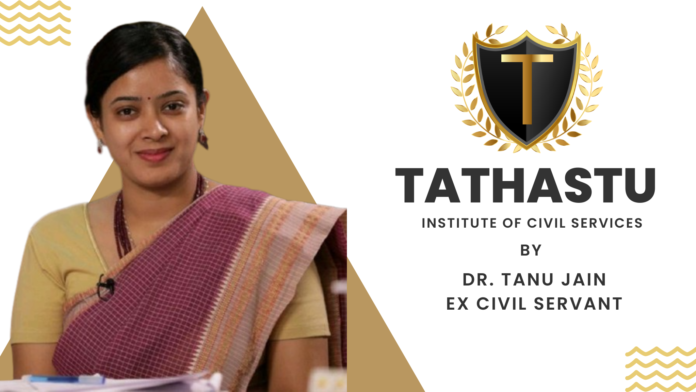Selecting an optional subject that reflects both your academic and professional background as well as your strengths can make or break your chances of passing the UPSC exam. Be sure to study up on its syllabus thoroughly, investing in quality study materials, answering previous year question papers and mock tests regularly as practice, before selecting your exam topic.
Check list of top UPSC optional subject list:
Geography
Geography is an attractive option among aspirants due to its high scoring potential and overlap with General Studies papers, however it must be remembered that successful performance requires both an in-depth knowledge of concepts as well as constant practice answering exam questions with quality answers. To score well in Geography it requires thorough comprehension and regular answer writing practice if aspirants want to score well on examinations.
In order to maximize their scoring potential, aspirants should focus on creating comprehensive notes with diagrams and maps integrated into them. Furthermore, seeking guidance from an experienced mentor may further their preparation and increase chances of success. Furthermore, sufficient books and study materials must also be made available.
Mathematics
People taking up this subject must possess an in-depth knowledge of its fundamental concepts. The syllabus requires extensive study and practice; study materials are available both online and off.
Anthropology offers high scoring potential and covers questions related to society and culture. With its concise syllabus, Anthropology is often selected by humanities candidates as one of their majors.
Physics
As part of selecting an optional subject for UPSC examinations, it is necessary to keep several factors in mind. Selecting subjects that overlap with General Studies exams can save time for study preparation; additionally, selecting an area with manageable syllabi and sufficient study materials would also prove advantageous.
Aspirants should put more importance on matching their interests and aptitudes over perceived scoring potential. Furthermore, it’s crucial that candidates conduct an in-depth assessment of every option subject they consider taking up; this includes reviewing its syllabus, difficulty level and study material availability as well as its dynamic nature.
Chemistry
Selecting optional subjects can have a profound effect on one’s performance in the Main exam. Candidates should select subjects that suit both their interests and academic strengths while considering available resources for studying them.
Choose a subject you really enjoy studying to keep yourself motivated throughout your preparation process. Make sure your answers contain references from quality articles, books, or indices – this will make them authentic and increase marks earned. Take mock tests regularly as practice answering questions; revise knowledge regularly too!
Biology
Selecting a subject for the UPSC Main exam is an integral step in their journey towards becoming civil servants. While it can be tempting to base decisions solely on perceived scoring potential, prioritizing compatibility with aptitudes and interests should always take precedence.
Consider choosing a subject with standard and reliable study materials available, like textbooks, reference books and online resources. Set regular revision sessions to solidify knowledge. Also focus on quality over quantity when answering questions critically with well-reasoned answers that avoid rote learning; this will yield better marks overall.
Economics
Finding an optional subject that complements one’s interests and strengths is paramount to an applicant’s Mains score and rank. When making this important decision, candidates should carefully consider topics like syllabus content, scoring potential and availability of study materials as they make their selection decision.
To maximize marks, write quality answers with an analytical perspective and link the subject matter with current affairs and developments. Conduct regular revision sessions using past question papers and mock tests; follow a schedule that balances studies with rest and healthy habits.
Public Administration
Selecting an optional subject that resonates with both your interests and academic background is of vital importance in today’s competitive environment. Furthermore, its availability of study materials should complement well the general studies syllabus.
Choose high-quality study materials, stay current on relevant current affairs, practice answer writing regularly, and sign up for a test series to simulate exam experience. Furthermore, ensure that you gain an in-depth knowledge of the fundamentals and key thinkers in your subject – this will allow you to write answers more efficiently and logically.
Medical Science
Selecting the appropriate optional subject can make a dramatic impactful statement about you and your academic background. Select a subject which combines your inherent strengths, academic history and interests while considering its syllabus, difficulty level and availability of study materials before making your final choice.
Instead of memorizing facts, try understanding the fundamental theories underlying your chosen subject. Cite from reliable sources like books, articles, indices and reports when answering questions; this ensures your answers are authentic and increases your score. Regular revision also helps strengthen knowledge retention.
Sociology
Sociology examines meaningful patterns of interaction among people occupying various interdependent roles such as prisoners and warders, doctors and patients or mothers and daughters. Furthermore, sociology investigates why certain classes are given advantages or disadvantages with regard to material possessions, status, reputation and respect.
Select an optional subject based on your interests and strengths, taking into account your existing background knowledge as well as access to high-quality study material. Examine previous year question papers to assess your aptitude and understanding of the topic at hand; use spaced repetition techniques for enhanced long-term retention.
Literature
An impressive optional score in the UPSC Mains exam can bring you closer to fulfilling your dream service career. When selecting an optional subject, be sure that it fits both your aptitude and interests; factoring in such factors as time commitment is also key when making this decision.
Studies materials, familiarity and availability should also be carefully considered. You should select subjects with manageable syllabuses and high scoring potential that you can easily pass. Furthermore, consider whether or not a subject has enough dynamic change; less dynamic subjects make covering new topics much simpler.


